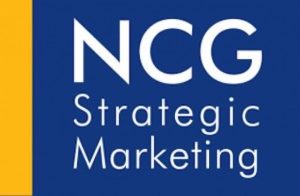The “Unique Selling Proposition” is a concept that’s close to the heart of marketers everywhere. The USP is a shorthand way of describing what every product or service desperately needs: a meaningful point of distinction, a way of differentiating it from the products or services of its competitors. In a crowded marketplace, a well-defined USP is truly critical, because without it, no product or service offering can expect to stand out.
Back in the early 1980s, Federal Express became famous for its groundbreaking Unique Selling Proposition, which guaranteed that the firm would deliver a letter or package anywhere in the United States overnight. The promise contained in the company’s tagline, revolutionary at the time, now seems almost quaint: “When it absolutely, positively has to be there overnight.”
Dated as that may sound today, 30 years ago it set Federal Express apart from every one of its competitors, and in a very significant and meaningful way: In the days before “overnighting” a document became standard practice, and more than a decade before email and the web became commonplace, nobody else was able to make that promise.
However, when I talk about the concept of a Unique Selling Proposition with attorneys, I often get blank stares. Granted, it’s a marketing concept that’s not taught in law school. But there’s more to it than that. For many lawyers and other professionals, it seems, well, unprofessional – and even flat-out wrong – to think of themselves as providers of services that must be marketed and sold. It is the profession of law, after all, isn’t it?
But – given all that – might there be something in the Unique Selling Proposition concept that could be helpful to lawyers in these competitive times? What if we rebranded the USP as the Unique Lawyering Proposition™?
Think of the ULP as what you do, where you do it, for whom you do it, how you do it, and possibly even when you do it. (If you’re paying attention, the only thing missing from this list is why you do what you do, which goes to your mission and vision as a lawyer and a law firm. We will address those concepts another time.)
With the above four W’s and one H in mind, a series of questions designed to elicit an attorney’s Unique Lawyering Proposition might look something like this:
- What is your market niche?
o This is your practice area “plus.” What’s the plus? It depends. If you’re the “Bed Bugs Lawyer” in your city, that may be a sufficiently small market niche to help you stand out. But if you’re a law firm that focuses on estate planning, you’ve got a lot of competition. However, if each of the attorneys in your firm is a military veteran, then perhaps helping other veterans with their estate planning would be a natural niche for you. If your niche does not immediately seem sufficiently small and well defined, you’ll want to keep working through the following questions as a way of getting to your Unique Selling Proposition.
- Where do you offer your services as an attorney, and how do you distinguish yourself from your competition in that marketplace?
o Chances are, there’s somewhere between one and 1,000 law firms in your geographic market that compete with you in your practice area. What makes you different? What makes you special? Why would a prospective client choose you? If you’re not sure, keep going.
- Who are your clients, and are they an easily identifiable group?
o Maybe you’re an immigration attorney, and you focus on the owners of Irish-American pubs. Maybe you’re a divorce attorney, and half the professional basketball players in the country have you on speed dial. If you haven’t yet found your ULP, try answering the next question.
- How do you deliver your services in a manner that separates you from your competitors?
o Maybe you’re faster or cheaper. Notice that I left out “better,” which many attorneys insist is true, but which is impossible to quantify. But maybe you’re quicker, with a 24-hour turnaround on all projects. Or maybe your level of client service is an order of magnitude better than anyone else in town, because you respond to all emails and voicemails within 60 minutes, or you always visit your clients at their office.
Are you there yet? Have you figured out your Unique Lawyering Proposition? If not, it’s quite likely that you don’t have a market niche, and you may feel frustrated that there’s no way of differentiating your legal services. If that’s the case, you need to think about hidden opportunities. What benefits do you offer – or could you offer – that you are overlooking? What natural niches might be sitting there waiting for you? What markets are underserved in your practice area? What markets will be underserved five years from now?
This is what you need to ask yourself: What types of legal services can you offer, in what geographies, to what types of clients, in what kind of packaging and pricing – that will set you apart from your competitors and provide you with a Unique Lawyering Proposition?
In today’s ever-changing marketplace for legal services, your Unique Lawyering Proposition does not come with a lifetime guarantee. But your long-term success is riding on your ability to find a strong ULP for your practice. Further, you must be willing to monitor any and all changes in the legal marketplace, and to respond by tweaking your Unique Lawyering Proposition so that it continues to resonate with your prospects and clients.


